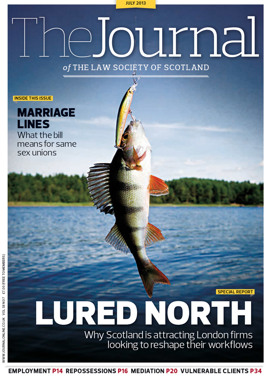Another bite at the cherry

Following a review of the current Employment Tribunal Rules of Procedure (the “old rules”) by a working party led by Lord Justice Underhill, the Employment Tribunals (Constitution and Rules of Procedure) Regulations 2013 (SI 2013/1237) (the “new rules”) were laid before Parliament on 31 May 2013. The key changes are set out below.
The new rules will come into force on 29 July 2013 and will apply to all claims from that date, including those already raised. There are two exceptions to this, relating to counterclaims and notices of appeal.
Overriding objective
The overriding objective is contained in rule 2 of the new rules, and makes reference to dealing with cases “justly” and “fairly”, whereas the old rules made reference only to “justly”.
The factors to support dealing with a case justly under the old rule 3 are augmented by a new factor, “avoiding unnecessary formality and seeking flexibility in the proceedings”. Furthermore, there is now a positive obligation on the parties to co-operate generally to achieve the overriding objective. It may be useful to quote this provision to the tribunal if a party to the proceedings is being difficult.
Rule 3 contains a new duty on tribunals to encourage the use of alternative dispute resolution by parties.
Rule 7 of the new rules allows the President of the Employment Tribunals in Scotland and the President of the Employment Tribunals in England & Wales to publish presidential guidance. This guidance is intended to cover matters of practice and how the powers conferred by the new rules may be exercised in typical situations. This will not be binding on tribunals.
Rejection and reconsideration of a claim
Under rule 12 of the new rules, a claim can be rejected if an employment judge believes the tribunal does not have jurisdiction to hear the claim, or if it is in a form which “cannot sensibly be responded to or is otherwise an abuse of process”. This latter ground may lead to ET1 forms which do not make clear the legal basis for the claim being rejected.
Under rule 11, a claim can be rejected if it is not accompanied by the tribunal fee, or fee remission application, reflecting the fact that tribunal fees will also be payable from 29 July 2013 (both an issue fee and a hearing fee) – subject, at time of writing, to judicial review challenges by Unison in England, and Fox & Partners in Scotland. It seems inevitable that this will lead to time bar issues due to non-payment of fees or a failure to include a remission application, where applicable.
Rule 13 contains a reconsideration process. Where a defect is rectified, the claim is treated as presented on the day it is rectified.
Presenting a response
Rule 16 of the new rules retains the 28-day time limit within which an ET3 form must be presented. Rule 4 states that “an act required by these Rules, a practice direction or an order of a Tribunal to be done on or by a particular day may be done at any time before midnight on that day”. Thus the status quo is maintained (an earlier draft of the rules had suggested that the deadline would be moved forward to 5pm).
Under the new rules, a respondent can apply for an extension of time to present their claim. In contrast to the position under the old rules, the application no longer needs to be made within the original 28-day time limit. The respondent will need to explain why they require the extension and, if the application is made outwith the 28 days, a copy of their proposed response should accompany their application. A claimant may oppose the application within seven days of receiving it.
A respondent may apply for a rejection to be reconsidered under rule 19.
A tribunal will no longer automatically issue a default judgment if a response has not been received within the 28-day time limit. Instead, an employment judge will decide whether the claim can be determined on the information provided, or with the benefit of further information from the parties, or whether a hearing is required (rule 21). Respondents will not be automatically debarred from taking part in any further part of the proceedings, and the employment judge will decide whether the respondent should still be permitted to participate.
Sift stage
New rules 26 to 28 introduce a new sift stage following the response to a claim having been received, at which an employment judge will consider:
- whether the claim or response (or part of it) should be struck out because it has no reasonable prospects of success;
- whether the claim or response (or part of it) should be struck out because it does not contain complaints within the jurisdiction; or
- if the case should proceed, what case management orders are required to get the case ready for a preliminary or final hearing.
If the judge considers that a claim has no reasonable prospects of success or that the tribunal has no jurisdiction, the tribunal will write to the claimant specifying that the claim will be dismissed on a set date unless the claimant has presented written representations to the tribunal explaining why the claim should not be dismissed. If written representations are received, the judge will either permit the claim to proceed or fix a hearing. There are similar provisions if the judge considers that a response has no reasonable prospects of success.
Hearings and withdrawal
Currently, prior to a full hearing, there may be a case management discussion (CMD) and/or a pre-hearing review (PHR). Lord Justice Underhill considered that the distinction led to unnecessary technical complications. As such, CMDs and PHRs are, under the new rules, being combined into one preliminary hearing at which both case management and substantive preliminary issues can be determined (rule 53).
If a preliminary issue is to be dealt with at the preliminary hearing, the parties must be given at least 14 days’ notice of the hearing. A preliminary issue is defined as “any substantive issue which may determine liability (for example, an issue as to jurisdiction or as to whether an employee was dismissed)”. Under rule 48, an employment judge is permitted to direct that a preliminary hearing is treated as a final hearing and vice versa, if they are satisfied that neither party will be substantially prejudiced by the change.
The withdrawal process has been simplified so that it will no longer be necessary for the respondent to write to the tribunal to have the claim dismissed. Rather, the employment tribunal will dismiss withdrawn cases on its own volition except in limited circumstances (rule 52).
Tribunals will be able to set a hearing timetable which imposes limits on the time a party may take in giving evidence, questioning witnesses and making submissions (rule 45).
Applications and orders
The procedure for making an interlocutory application has been relaxed and there is no longer a requirement for a party to explain how the granting of the order sought will assist the tribunal in dealing with the case efficiently and fairly. Parties need to copy each other in to any correspondence (except for witness orders, where this is not required), indicate to the tribunal that this has been done (rule 92), and advise the other party that any objections to the application should be sent to the tribunal as soon as possible (rule 30).
In terms of rule 38, “An order may specify that if it is not complied with by the date specified the claim or response, or part of it, shall be dismissed without further order” (an “unless” order). A claimant or respondent will now be informed if such a dismissal takes place and will have 14 days within which to apply for the decision to be set aside on the basis that it is in the interests of justice to do so.
Rules 70 to 73 set out a procedure by which any decision of the tribunal can be reconsidered. This is very similar to the current review procedure in the old rules, except that the only ground in the new rules is where it is necessary in the interests of justice.
Moving forward, it will be possible for a deposit order to be made in relation to particular allegations or arguments rather than the whole claim or response. This will be very useful for a respondent faced with a single cause of action with multiple unmeritorious points (rule 39).
Cost awards above £20,000 will no longer require to be referred to the sheriff court for taxation, but rather the employment judge can carry out the taxation, should they wish (rule 78).
New claim forms
Draft ET1 and ET3 forms were previously published which were not substantially different from the current forms, although the presentation of the information was different. It was expected that the final versions of the revised forms would be published with the new rules; however they have not been included. It is anticipated that they will be introduced in due course.
More straightforward
The new rules are relatively straightforward and are written in plain English to make them more accessible. They also seek to resolve some of the difficulties caused by certain aspects of the old rules. The sift stage, in particular, is likely to make a significant difference. A review of every case by an employment judge at an early stage is likely to result in certain cases being struck out which would otherwise have proceeded under the old rules. It is also hoped that the requirement for a judge at the sift stage to give case management orders will result in greater efficiency and ensure that parties’ minds are focused at an early stage.
In this issue
- Credit hire: back to basics
- You know who I mean
- Behind all the fun
- Your Future in Law
- Reading for pleasure
- Opinion column: Cameron Fyfe
- Book reviews
- Profile
- President's column
- Mapping out the Crofting Register
- Back office bait
- Another bite at the cherry
- Security of your home
- Marriage redefined
- Building better business cultures
- Keeping a rein on child cases
- Minimum gain
- Beware LLP tax changes
- Framework remodelled
- Scottish Solicitors' Discipline Tribunal
- A Scottish ILG chair in New York
- Beneath the surface
- Being alert to the needs of the vulnerable
- Sins of our leaders
- How not to win business: a guide for professionals
- Litigation: a tight ship?
- Ask Ash
- Why sep rep?
- From the Brussels office
- Law reform roundup
- Diary of an innocent in-houser






